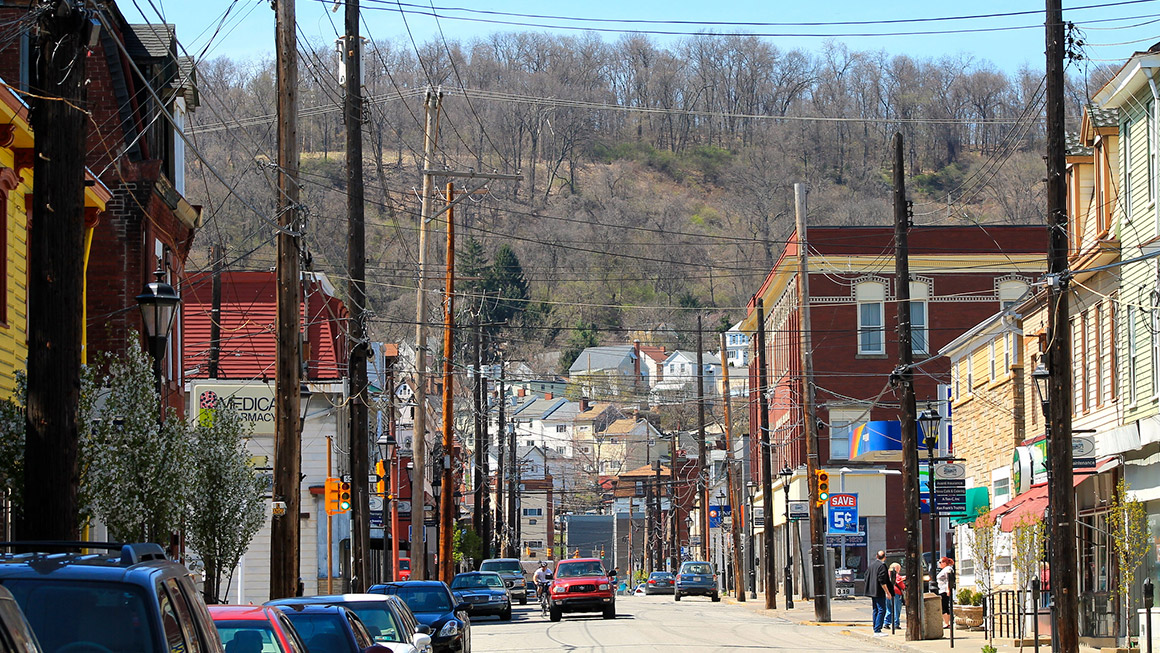UNIVERSITY PARK, Pa. — Four Penn State World Campus students have spent the school year working with Pennsylvania boroughs to inventory greenhouse gas emissions and coming up with plans for reducing them.
The energy and sustainability policy majors spent the fall 2019 semester cataloging municipal emissions and the spring 2020 semester helping develop climate action plans for the towns they are paired with.
As World Campus students, the four were working remotely even before the COVID-19 pandemic closed schools and offices across the country, so they were able to continue their work during the shutdown.
Mason Taylor, who works in the fashion industry in Los Angeles, worked with the borough of Etna, Pennsylvania, across the Allegheny River from Pittsburgh. Taylor said the project helped him find a new career direction and motivated him to be more involved in government.
“This project has brought me back to earth and has me working locally and thinking globally,” he wrote in his blog, which the students were required to keep weekly.
Ryan Muller, who is on active duty with the military, based in Florida, worked with Sharpsburg, a borough neighboring Etna.
“Having an experience like this makes me even more dedicated to creating a change in the world,” Muller wrote in his blog. “Working on this project affects a small number of people but can lead to significant changes in the future.”
Taylor, Muller, and Lucas Skiba, who lives in State College and spent the year working with the borough of Millvale, are part of a program sponsored by the Pennsylvania Department of Environmental Protection that includes 20 municipalities across the state working with university students and the International Council for Local Environmental Initiatives. A fourth Penn State student, Derek Fisher, of Durham, North Carolina, worked with the borough of State College, which is not part of the official state program but followed the same model and processes.
Haley Sankey, assistant teaching professor and adviser in the John A. Dutton e-Education Institute in the College of Earth and Mineral Sciences, said the project gave the students a chance to apply their course work in the real world.
“We teach students a lot about policy and how they can influence policy,” Sankey said. “This experience is really helping them walk the walk.”
Fisher presented his inventory results in person to the State College Borough Council last fall. Among his findings: a significant reduction in the use of coal since the previous inventory was conducted in 2014 and a corresponding increase in the use of renewable energy sources. At the same time, Fisher said, both residential and commercial energy consumption rose despite increased efficiencies because consumers today are using more electronic devices and air conditioners.
One of Fisher’s climate action proposals is refreshingly low-tech: putting bricks in toilet tanks to reduce the amount of water used with each flush.
“The borough loved the brick concept, and they liked the idea of painting the bricks either silver and red (Ohio State) or maize and blue (Michigan),” he wrote in his blog. “We’re going to sell a brick for a dollar to be placed in toilets of housing units in the borough. Even if only 25% of all the housing units in the borough were to participate, it would result in over 17 million gallons of water being saved a year by the borough!”
Fisher’s other suggestions included a contest for best low energy–use holiday decorations, stickers to show local restaurants and businesses are “energy concerned,” and preferential parking for electric vehicles.
“I think my contribution is one of knowledge,” Fisher said. “I gave the borough information, and it’s really up them now to decide how to implement it.”
Taylor said the pandemic slowed the pace of work on the project because local officials sometimes had to switch focus to deal with coronavirus-related issues.
“There isn’t enough time in the day for these few representatives to get daily matters, COVID issues, and CAP work done at the same time,” he wrote in his blog.
Skiba said the pandemic forced the cancellation of a planned community meeting to gather ideas and input for the climate action plan. Instead, Skiba and the Millvale task force plan to present their findings to the community at a virtual workshop via Facebook Live.
Photo credit: Jon Dawson/Flickr
